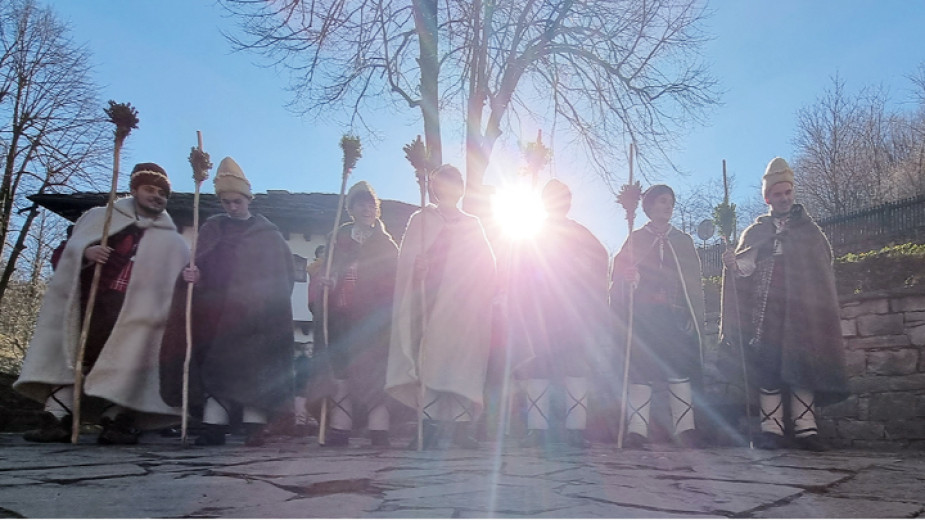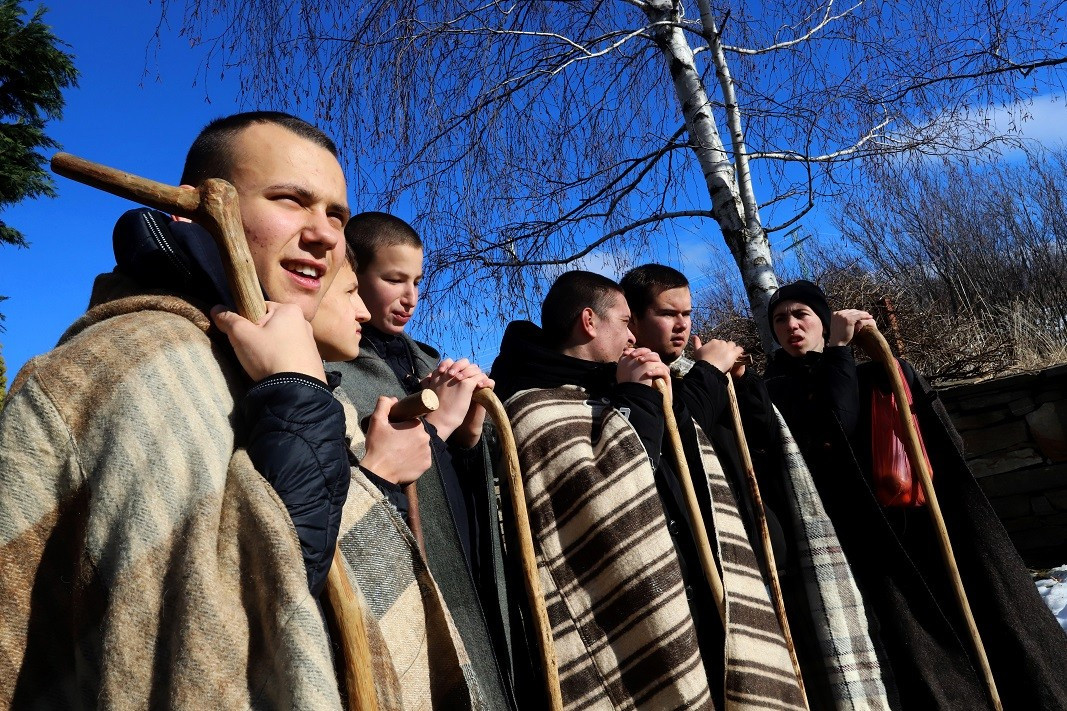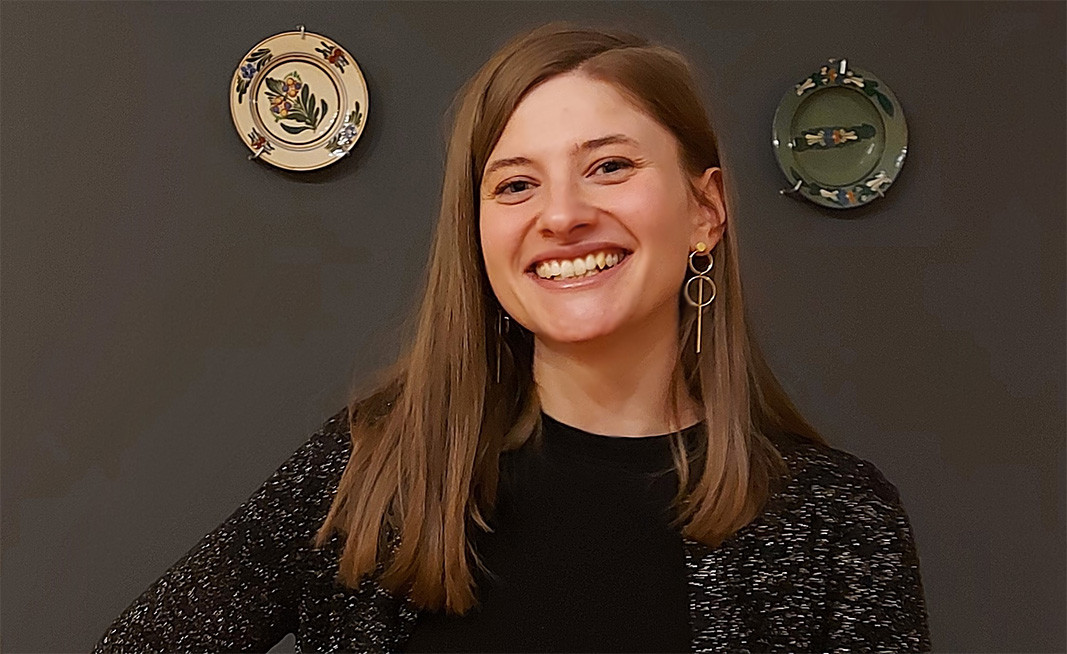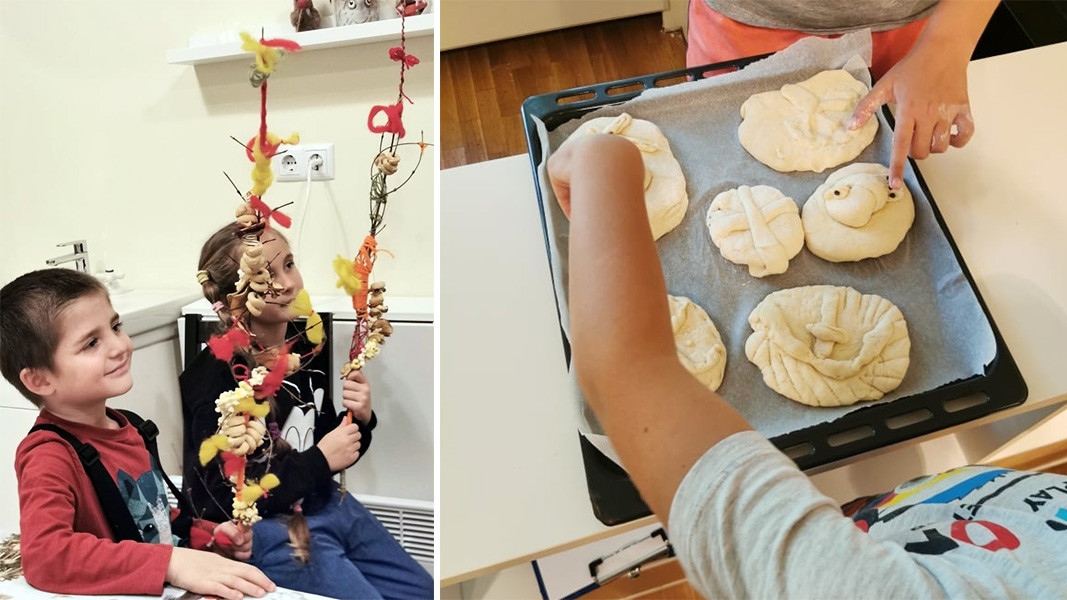 4
4
On Christmas morning the glad tidings have spread that the Son of God was born, making it a special day celebrated with a lot of festive rituals. After Christmas Eve, when families get together for a festive meal, comes Christmas. On 25 December the long Nativity Fast is over and people open their homes to welcome guests. All people named Hristina, Hristo, Bozhidar and their derivatives celebrate their name day on Christmas Day, also known as Bozhich in some parts of Western Bulgaria.
Early on 25 December, people would go to church and put their best clothes on. But before sunup, koledari - carolers - would knock on the door of each home. They would start making the rounds of the village at midnight on Christmas Eve, and would visit every home by dawn – it was believed their magic powers were lost as soon as the sun came up.

Caroling has pagan roots, and only unmarried men were allowed to take part – only their leader could be an older man. “Families were not always able to go to bed on Christmas Eve because they had to wait up for the carolers to visit. And if their house was the last one in the village then they would wait up all night to receive the Christmas blessings,” says Maria Boyanova, ethnographer at the Bulgarian Academy of Sciences’ Institute of Ethnology and Folklore Studies:

“Christmas Eve is a time to be spent at home with your family. In the morning people would attend the festive liturgy in church, and then they would all gather for a village horo dance, together with the carolers. After that people would go visiting with the people whose name day it is, so that Christmas turns into a feast day opening people’s homes to visitors instead of merely to a closed family circle. Then comes the festive Christmas dinner. At this dinner meat is allowed as the Nativity Fast is over.

The carolers’ groups are made up entirely of men because they make the rounds of the village at night when all wicked spirits are abroad – it is thought that only a man’s body is capable of withstanding this peril and stay safe until dawn. It is important to wait up for the carolers because they bring the tidings that Jesus was born, and in bringing this news to every home they bless it. There are a great many recorded Christmas songs though many of them are no longer performed. The carolers of today, where there are any left, are in fact people who reenact the tradition of the past. Tradition is what brings people in Bulgaria together during holiday season to this day,” says Maria Boyanova.

Maria Boyanova also heads a traditional survachka and ritual bread workshop organized before Christmas at the National Ethnographic Museum in Sofia. The workshop is very popular with children who want to know more about Bulgarian customs and tradition:
“The tradition of Father Christmas appeared in Bulgaria after the country’s liberation (in 1878). Like the Christmas tree, this tradition comes from Germany and entered Bulgaria via the Russian and Czech tradition. In Western Europe Santa Claus is believed to be connected with St. Nicholas who gave children who have been good treats, and naughty children – cinders. Krampus is the other face of St. Nicholas, he punishes the children who have been bad. And in the English-speaking world, Santa Claus probably comes from Nicholas – St. Nicholas.”
Translated and posted by Milena Daynova
Photos: BTA, BGNES, National Ethnographic Museum/Facebook, nembg.com, stornik.bg, etar.bg, facebook.com/folklorebulgarian
In April and May the visitors of the Strelcha Historical Museum will have the opportunity to get acquainted with the traditions connected with the Easter holiday cycle through the exhibition A Fine Easter, a Finer St. George’s Day . Easter..
Lazarus Saturday is widely known in Bulgaria as Lazarovden , celebrated by Orthodox Bulgarians on the day before Palm Sunday. The main rite is the lazaruvane - a traditional custom centred on themes of love and marriage. Girls over the age of 16,..
The historic town of Tryavna will celebrate St Lazarus' Day, traditionally held on the Saturday before Palm Sunday. The Bulgarian custom, known as lazaruvane , is closely linked to the themes of love and marriage and will be re-enacted this..

+359 2 9336 661
